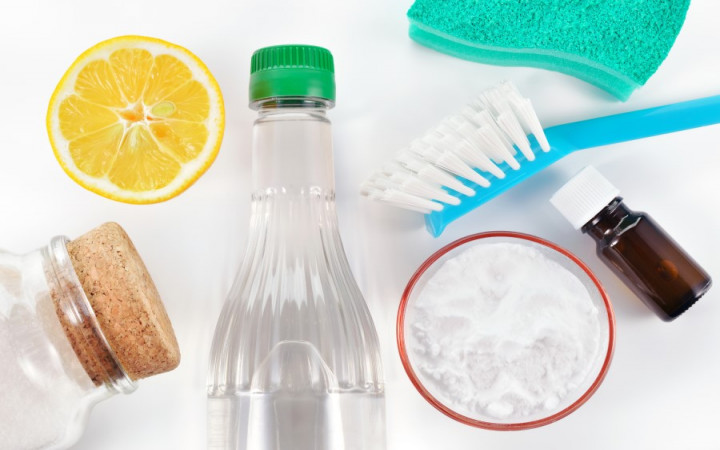Did you know that there's something probably lurking in your refrigerator or kitchen cabinets that can be used as both a food and a cleaning product? It's true! It's time for you to get to know the benefits of vinegar!
With a vivid taste and smell, vinegar is a versatile liquid with many uses and benefits. Created from the fermentation of alcohol, the main ingredient in vinegar is acetic acid. The acetic acid in vinegar gives it its unique taste and smell, as well as some of its other less-famous benefits.
From salt and vinegar potato chips to vinaigrette salad dressings, vinegar is an important kitchen tool that is frequently used as an ingredient or a condiment. Kitchen cabinets and refrigerators may have several different types of vinegars, including white vinegar, apple cider vinegar, red wine vinegar, and balsamic vinegar. These and many other different types of vinegars come from the fermentation of different types of liquids.
The name vinegar comes from the Old French words vin aigre, which mean “sour wine." This name is appropriate, given that vinegar is made from the oxidation of ethanol in a liquid that contains alcohol, such as wine, fermented fruit juice, or beer.
Vinegar's unique taste makes it an important ingredient in the pickling process. That sour taste you love in dill pickles? You can thank vinegar for that! Vinegar also adds a punch to various sauces and marinades.
More than just an important ingredient and condiment, vinegar is also a great all-purpose household cleaner. Its potent acetic acid content makes vinegar a powerful tool as a stain remover, mildew fighter, soap scum dissolver, lime descaler, metal polisher, air deodorizer, and fabric softener!
Vinegar is also believed to have strong antibacterial properties. Scientific tests have shown vinegar to be 99.9% effective in killing bacteria. It's also approximately 90% effective against mold, which makes it a good alternative to harsh chemicals to get rid of mold in your bathroom!
If you have mold in a shower, you can use a wide variety of chemical cleaners. These can be dangerous to use, however, especially if you breathe the fumes. Using vinegar combined with either baking soda or hydrogen peroxide is a much safer and quite effective substitute.
In addition to killing mold, vinegar is sometimes used to prevent mold. Spraying vinegar on hard surfaces and allowing it to dry helps to prevent mold from forming. People who have floors that develop mold in certain areas often mop the floor with a vinegar and water solution to prevent mold from reappearing!




